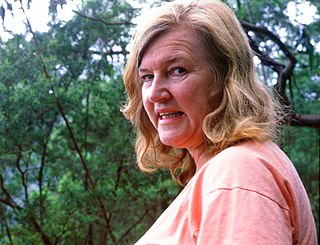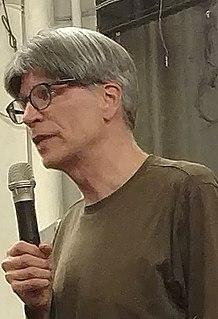A Quote by Frederick Lenz
The condition of humankind is not good, in the sense that the illusory prisons we create for ourselves through our desires and our frustrations are unhappy.
Related Quotes
The path to realizing our dreams is never smooth. Invariably we encounter bends, turns, detours, and roadblocks. Sometimes our frustrations make us want to give up the journey, but frustrations signal the need to pause for introspection and redirection. Frustrations are promptings from God to search our souls even more deeply to find our power and purpose, and to live it. Frustrations tell us that our thoughts and actions are not yet in harmony with our desires.
Sexuality is a part of our behavior. It's part of our world freedom. Sexuality is something that we ourselves create. It is our own creation, and much more than the discovery of a secret side of our desire. We have to understand that with our desires go new forms of relationships, new forms of love, new forms of creation. Sex is not a fatality; it's a possibility for creative life. It's not enough to affirm that we are gay but we must also create a gay life.
It is difficult to see ourselves as we are. Sometimes we are fortunate enough to have good friends, lovers or others who will do us the good service of telling us the truth about ourselves. When we don't, we can so easily delude ourselves, lose a sense of truth about ourselves, and our conscience loses power and purpose. Mostly, we tell ourselves what we would like to hear. We lose our way.
To the extent that we hyper-separate ourselves from nature and reduce it conceptually in order to justify domination, we not only lose the ability to empathise and to see the non-human sphere in ethical terms, but also get a false sense of our own character and location that includes an illusory sense of autonomy. The failure to see the non-human domain in the richer terms appropriate to ethics licences supposedly ‘purely instrumental’ relationships that distort our perceptions and enframings, impoverish our relations and make us insensitive to dependencies and interconnections
Every time you have a desire, in a certain sense you have a goal, something you would like to be, do, or have. Some desires are merely passing fancies, but others stay with us and go deeper. Our desires and our goals give us direction and focus. They help point us down our path of action in our life.
The image of the Goddess inspires women to see ourselves as divine, our bodies as sacred, the changing phases of our lives as holy, our aggression as healthy, our anger as purifying, and our power to nurture and create, but also to limit and destroy when necessary, as the very force that sustains all life. Through the Goddess we can discover our strength, enlighten our minds, own our bodies, and celebrate our emotions. We can move beyond narrow, constricting roles and become whole.
































